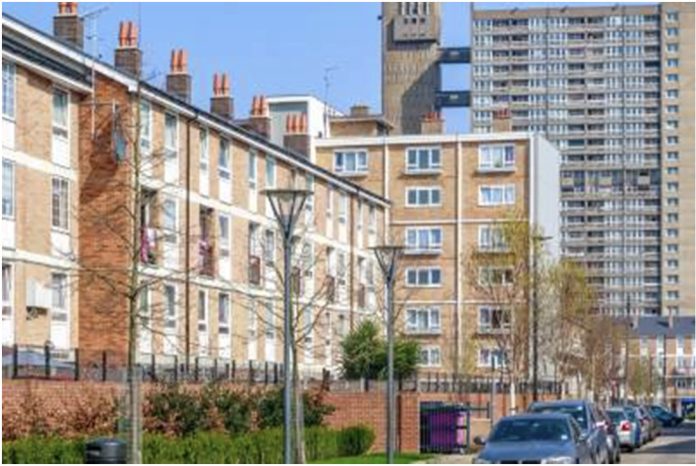The next government could add £51.2bn to the economy, including £12bn profit to the taxpayer, by building 90,000 social homes, according to new research carried on behalf of Shelter and the National Housing Federation (NHF).
The new report, The economic impact of building social housing, is the first to show the massive economic and social benefits of building 90,000 new social rented homes – the figure that needs to be built each year to fix the housing crisis and help end homelessness. Social rented housing is the only genuinely affordable housing by design, as rents are tied to local incomes. On average, social rents are around 50% cheaper than private rents.
The report demonstrates that building 90,000 social homes provides both immediate and long-term value for money for the government and the economy. It would directly support nearly 140,000 jobs in the first year alone. Within three years, the wider economic benefits of building the homes would break even and return an impressive £37.8bn back to the economy, largely by boosting the construction industry.
The savings and additional tax revenue mean the initial government funding required to build the homes (£11.8bn) would be fully paid back in 11 years. Over the 30 year period, building these homes will add £12bn net (£24bn gross) in benefits to the taxpayer.
Social homes are more stable than private renting, as tenancies are secure, giving social tenants stronger rights and greater protection from eviction. As a result, the socioeconomic benefits of building 90,000 social homes, outlined in this new research report are significant, and include better education outcomes, savings to the NHS, increasing rates of employment and reduced crime. The total economic and social benefits of building the homes would generate £51.2bn net over 30 years (£86.5bn gross).
For decades, successive governments have failed to build enough social homes and every year we lose more than we build through right-to-buy sales and demolitions. Last year alone, there was a net loss of nearly 11,700 social homes, while 1.3 million households are stuck on social housing waiting lists in England. One in six children are living in an overcrowded home and a record 140,000 children are homeless and living in damaging temporary accommodation, such as one-room hostels and B&Bs, often miles away from their schools. Thousands more people are forced to sleep on the street.
Ahead of the general election, Shelter and the NHF are calling for political parties to commit to end the housing crisis. This can only be done with a long-term plan which prioritises social housing, including urgent action to ramp up delivery of 90,000 new social homes a year to meet demand.
Polly Neate, Chief Executive of Shelter, said:
‘Homelessness is a political choice, with a simple solution. Building 90,000 social homes a year will not only end the housing emergency, but due to the wider economic benefits it brings, it will pay for itself within just three years.
Day after day our frontline services are inundated with calls from people who are being tipped into homelessness because there are no genuinely affordable homes available and private renting is just too expensive. Communities are being torn apart as people are priced out of their local areas – leaving behind their jobs, children’s schools and support networks.
It doesn’t have to be this way. A safe and secure social home will give people a place to thrive – improving their health and access to work and education. All political parties must make the choice to ending the housing emergency – they must fully commit to building 90,000 new genuinely affordable social rent homes a year for ten years.’
Kate Henderson, Chief Executive of the National Housing Federation said:
‘This research shows not only that the housing crisis can be solved, but that this can be done in a way that will save the taxpayer money, boost jobs and bring huge benefits to the wider economy.
Right now, we are in the midst of a housing emergency. Millions of children are being pushed into homelessness, families are being forced into impossible choices to keep a roof over their heads and people in every community in the country are seeing life chances harmed by inadequate housing.
Building more social homes is a win-win solution. It will immediately boost the construction industry, supporting thousands of jobs, and will save the government and taxpayer money over the longer term. It also brings huge benefits to people affected by the housing crisis through reducing homelessness, increasing employment and boosting children’s life chances. We urge all political parties commit to a long-term plan for housing with funding to build plan for a generation of new social homes.’







